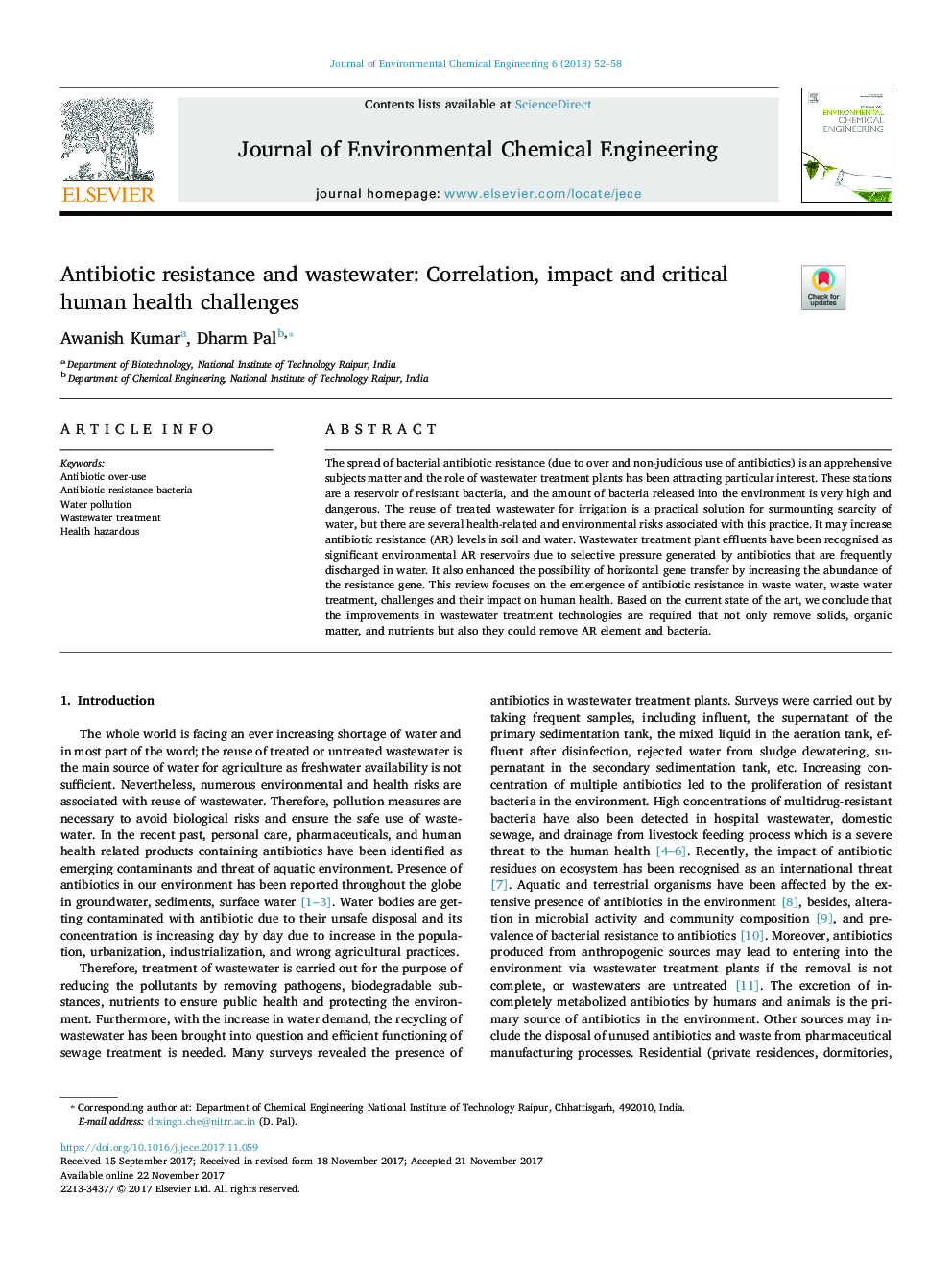| Article ID | Journal | Published Year | Pages | File Type |
|---|---|---|---|---|
| 6664054 | Journal of Environmental Chemical Engineering | 2018 | 7 Pages |
Abstract
The spread of bacterial antibiotic resistance (due to over and non-judicious use of antibiotics) is an apprehensive subjects matter and the role of wastewater treatment plants has been attracting particular interest. These stations are a reservoir of resistant bacteria, and the amount of bacteria released into the environment is very high and dangerous. The reuse of treated wastewater for irrigation is a practical solution for surmounting scarcity of water, but there are several health-related and environmental risks associated with this practice. It may increase antibiotic resistance (AR) levels in soil and water. Wastewater treatment plant effluents have been recognised as significant environmental AR reservoirs due to selective pressure generated by antibiotics that are frequently discharged in water. It also enhanced the possibility of horizontal gene transfer by increasing the abundance of the resistance gene. This review focuses on the emergence of antibiotic resistance in waste water, waste water treatment, challenges and their impact on human health. Based on the current state of the art, we conclude that the improvements in wastewater treatment technologies are required that not only remove solids, organic matter, and nutrients but also they could remove AR element and bacteria.
Related Topics
Physical Sciences and Engineering
Chemical Engineering
Chemical Engineering (General)
Authors
Awanish Kumar, Dharm Pal,
